Pack your bags: These 5 Brands are Changing How We Book Travel
Published on June 23, 2017/Last edited on June 23, 2017/6 min read


Team Braze
It wasn’t that long ago that planning a trip required a lot of preparation, organization, and added considerable weight to your luggage, what with all the printed maps, guidebooks, and confirmations you had to keep around. The rise of mobile changed all that, helping users travel light and giving companies opportunities to reach those users more effectively wherever they are in the world. That’s done a lot to produce stronger customer retention and ROI—but only for brands that do mobile right.
To succeed over the long haul, travel and hospitality brands need to expand their mobile marketing beyond the purely transactional aspects of bookings and confirmations to build strong customer relationships. After all, most travelers aren’t going to leave their phone at home when they travel, making mobile outreach a powerful way to strengthen your audience’s brand loyalty before, during, and after the trips your brand makes possible.
One big challenge for brands in this vertical is that engagement can drop off between bookings or trips. Continuing to provide value and engage with users in a more consistent way over time can make it more likely that you’ll see repeat business. What does that look like? A strong engagement strategy that includes thoughtful onboarding, relevant messaging, and innovative cross-channel approaches to reach users in relevant valuable ways. To help you get started, let’s take a look at five travel and hospitality brands that are doing it right:
Airbnb
Airbnb started on desktop, but the brand has seen a lot of success from its move into the mobile space. The company—which pairs people who have spaces to rent with travelers looking for a place to stay or an alternative to a hotel—has done a great job matching these people up in a very humanizing (and amazingly, not intimidating) way.
Airbnb’s app makes it easy to explore rentals—but they’ve also added in social elements to help people coordinate bookings with friends and family members, and added location-specific content that encourages users to explore local events. Every screen and message evokes a friendly community you’d want to help you plan your next trip.
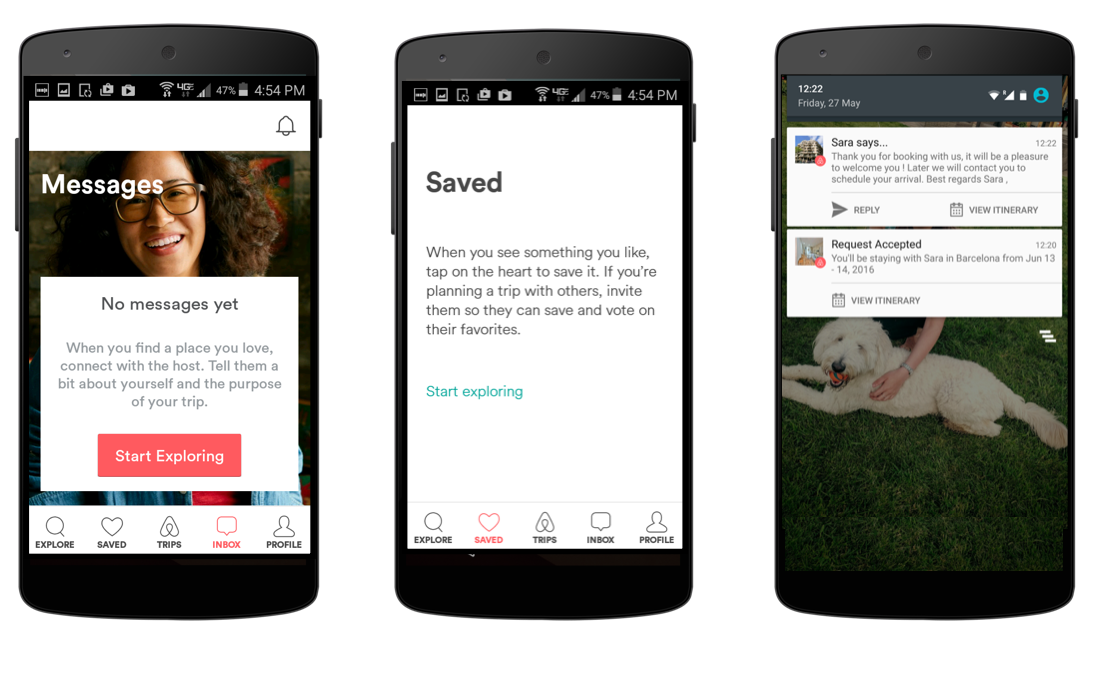
Airbnb’s friendly voice is consistent across channels
The company has even found some creative ways to make bookings easier on mobile. Their use of push notification action buttons allow users to communicate with hosts directly from the lock screen, supporting a seamless customer experience.
Hopper
Low-fare finder Hopper uses mobile to help their users get the best deal. After plugging in a date range and route to watch, the app sends users a push when it’s the ideal time to buy tickets based on their algorithm. Talk about relevant! There’s nothing better for open rates than a push that users are looking forward to receiving—in this case, so that they can act quickly and save money.
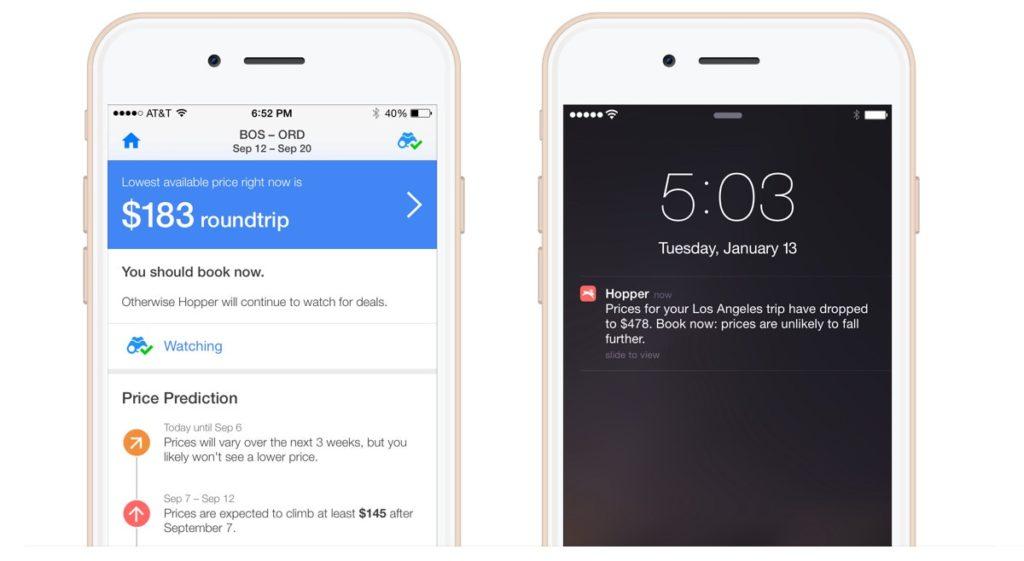
Source: Hopper via Medium
Hopper is also a great example of a brand that understands the value of smart permissioning. Because push notifications opt-ins are so essential for Hopper’s app to fulfil its main purpose, a message explains the value of opting in before you reach the native prompt. Being clear about the benefits that come with enabling push before the decision is made can make it more likely that you get the permissions your app needs the first time.
HotelTonight
Mobile is a convenient vehicle for last minute bookings, and that’s what HotelTonight is all about. The app gives users deals on rooms that have been left unsold. It’s easy to use and visually stunning—they even give you an album of pictures to help pick out your hotel.
Since the app knows where users are traveling, HotelTonight can leverage that location data to show the local forecast, let travelers know about any events in the area that might be raising prices, and load reviews from other users. The app’s onboarding is top-notch, too: it comes up with the first open, giving new users a quick, overview of the app’s benefits in the brand’s trademark cool, friendly voice.
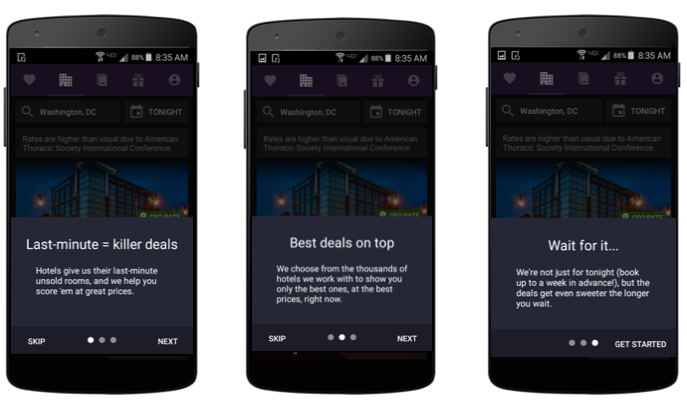
HotelTonight helps make their value clear—quickly and early
Momondo
This app aims to make flight and hotel searches easier—you can start searching from the moment you first open. But while the app never stops you from carrying out searches as a guest, momondo nudges new users to create a profile by highlighting how doing so can help them get even more out of the app.
Momondo builds little hints into the ongoing app experience as the user continues searching, serving as an effective alternative to traditional onboarding flows. It also has a great preference center, making it possible for users to set search preferences that will save them time and support a more valuable, personalized experience.
The company’s also an exemplar when it comes to keeping travelers engaged between booking—instead of just accepting an engagement gap between trips, they use push notifications to nudge users into considering taking a trip. And when users do make a flight booking, momondo takes advantage of dynamic content to nudge them to book a hotel, too.
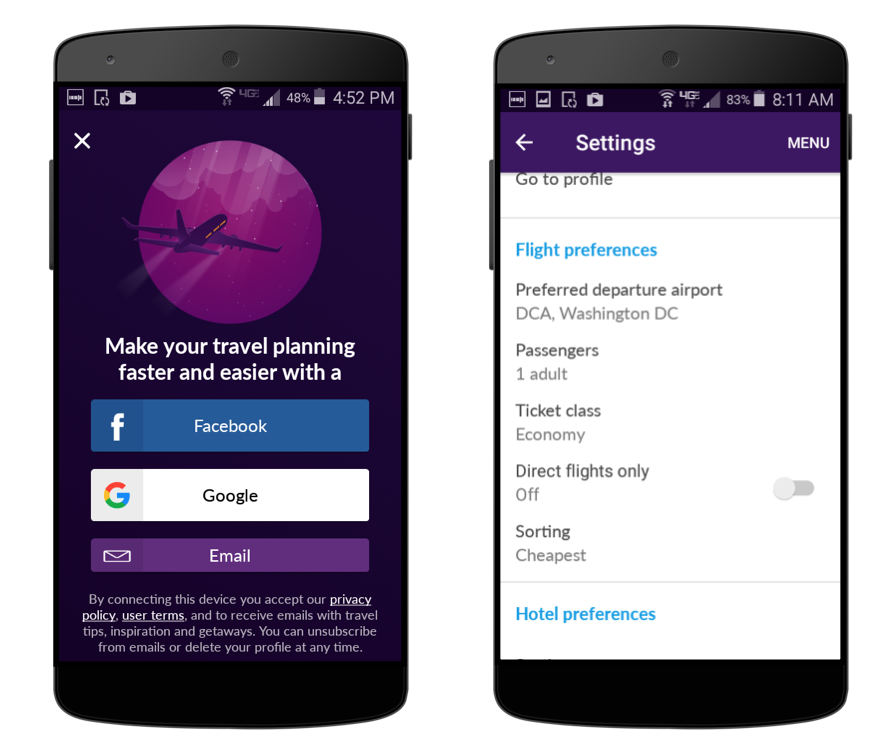
Momondo does a great job blending UX with data capture to create more personalized experiences.
Tripit
Personalization is a big strength for Tripit, an app that lets you import confirmation emails to build a travel itinerary. Since users are submitting their details directly into the app, it has access to exactly the sort of unique, highly individual details that help build a hyper-relevant experience.
Since creating a profile is critical for Tripit’s functionality, the app doesn’t let users explore without registering. For those who’d like a little more information before signing up, Tripit uses in-app messaging to give users an overview of how using the app will benefit them. After sign-up, they use other channels to encourage users to go deeper: for instance, by sending a confirmation email to get started or to update the profile and push upload confirmations.
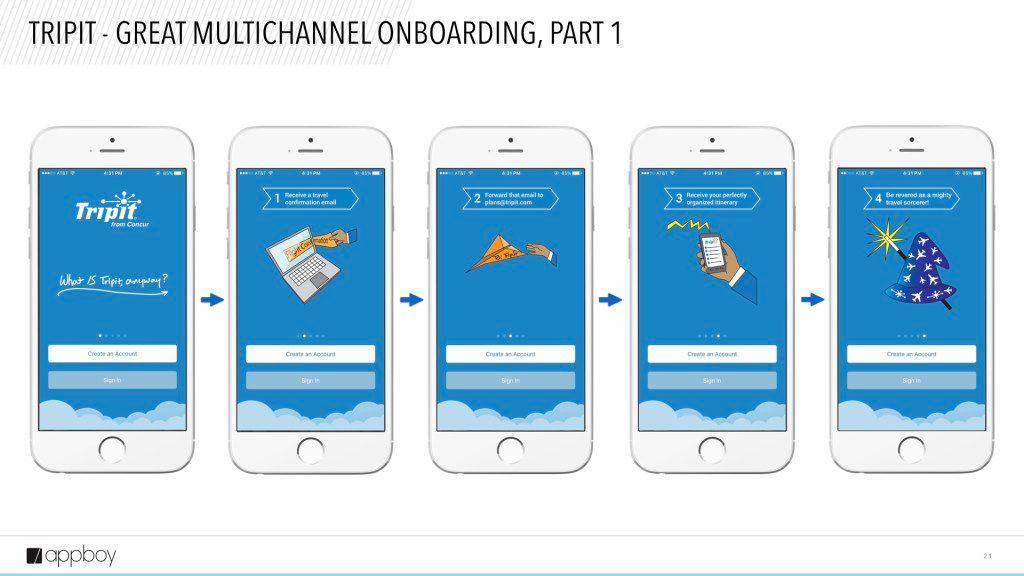
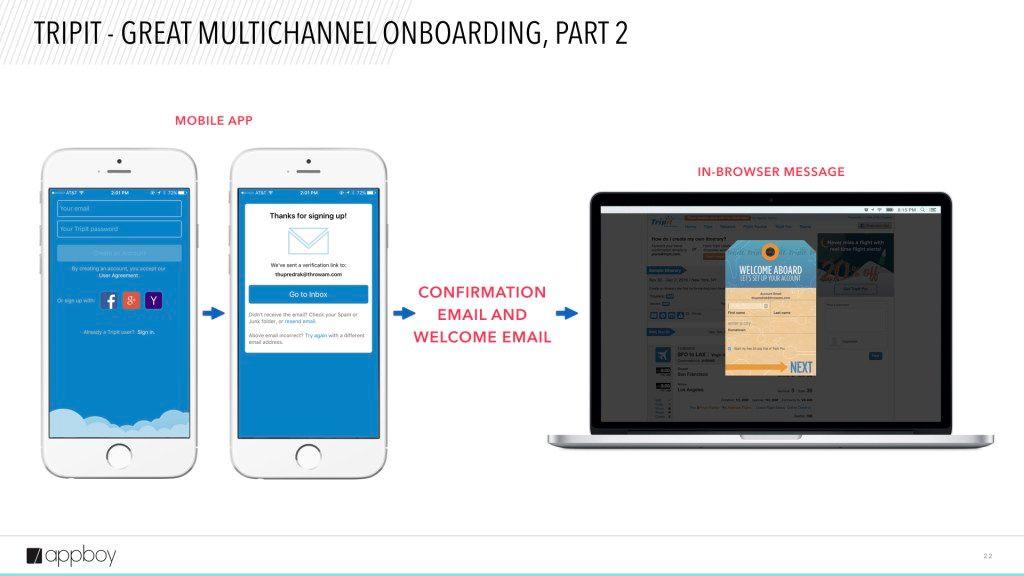
Tripit’s quick and clear onboarding leads to other multi-channel engagement
Anything else?
By prioritizing thoughtful onboarding, leveraging location data, and taking advantage of messaging tools like push notification action buttons and dynamic content, mobile-savvy travel brands can provide their customers with the kinds of engaging, brand experiences that support long-term loyalty. To learn more about how mobile is affecting the travel and hospitality space and how to build smart, mobile-first outreach campaigns, check out our travel and hospitality marketing hub.
Releated Content
View the Blog
Data agility at a massive scale: How the Braze Data Platform supports customer engagement

Sahiz Kaur
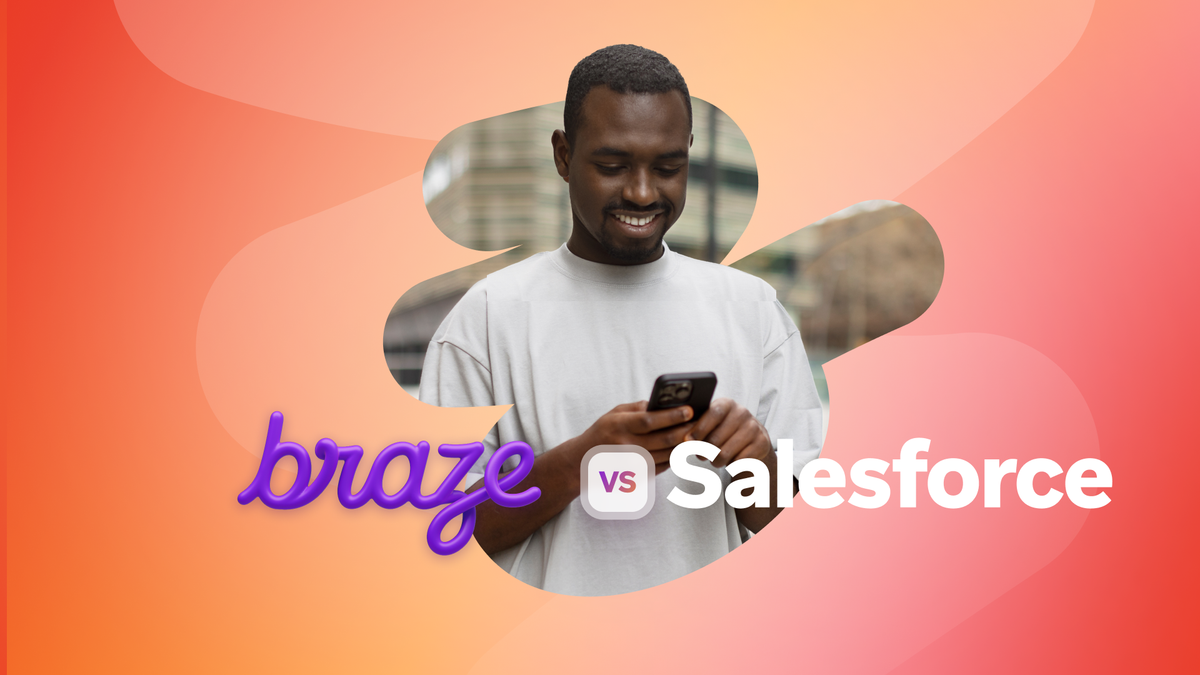
Braze vs Salesforce: Which customer engagement platform is right for your business?

Team Braze
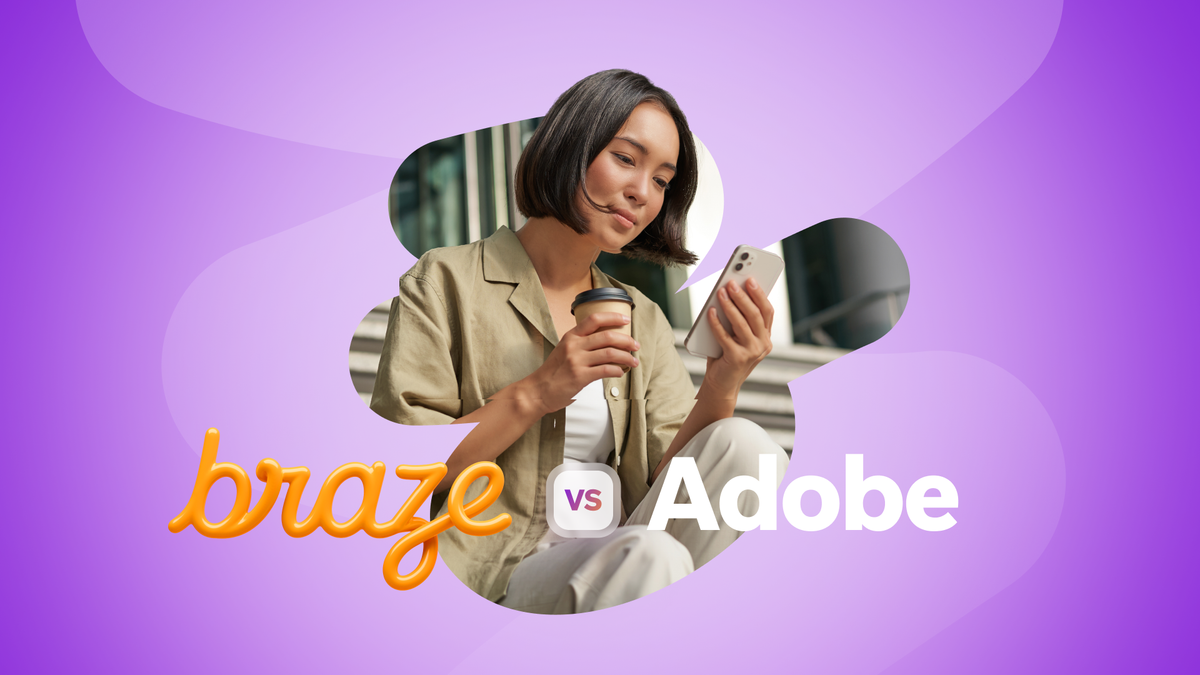
Braze vs Adobe: Which customer engagement platform is right for your brand?
